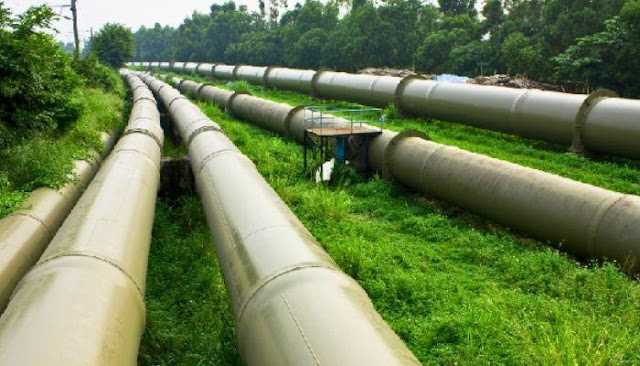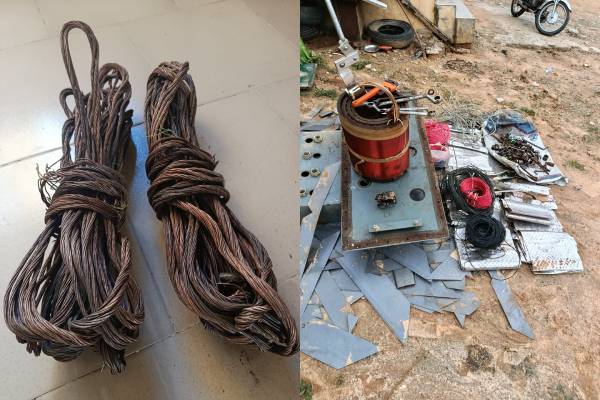The Nigeria Liquefied Natural Gas (NLNG) Limited has achieved a significant milestone in its operations, recording a 70% operational success rate on the Trans-Niger Pipeline (TNP), a critical piece of infrastructure in Nigeria’s oil and gas sector. This accomplishment, announced recently, underscores NLNG’s commitment to enhancing the reliability of Nigeria’s energy infrastructure and supporting the country’s efforts to maximize the value of its hydrocarbon resources. The achievement comes at a time when Nigeria is grappling with longstanding challenges in its oil and gas industry, including pipeline vandalism, oil theft, and operational inefficiencies, making it a noteworthy step toward stabilizing the sector.
The Trans-Niger Pipeline, a key artery for transporting crude oil and associated gas from the Niger Delta to export terminals and processing facilities, has been a focal point of operational and security challenges for decades. NLNG’s success in achieving 70% operational efficiency on this pipeline reflects the company’s strategic investments in infrastructure maintenance, security enhancements, and stakeholder collaboration. This milestone not only strengthens NLNG’s position as a leading player in Nigeria’s energy sector but also signals Nigeria’s potential to overcome systemic issues and attract further investment into its oil and gas industry.
The Trans-Niger Pipeline: A Critical Asset in Nigeria’s Energy Landscape
The Trans-Niger Pipeline is one of the most important pieces of infrastructure in Nigeria’s oil and gas value chain. Stretching over 180 kilometers, the pipeline connects oil and gas fields in the Niger Delta to the Bonny Export Terminal, where NLNG operates its liquefaction plant. The pipeline, which has a capacity to transport up to 600,000 barrels per day (bpd) of crude oil and significant volumes of associated gas, is a lifeline for Nigeria’s energy exports, particularly liquefied natural gas (LNG) and crude oil.
The TNP was commissioned in the 1960s and has since played a pivotal role in Nigeria’s emergence as a major oil-producing nation. However, the pipeline’s strategic importance has made it a target for vandalism, sabotage, and illegal bunkering, which have disrupted operations and caused significant economic losses. According to industry estimates, Nigeria loses billions of dollars annually due to oil theft and pipeline disruptions, with the TNP being one of the most affected assets. These challenges have not only reduced Nigeria’s oil production capacity but also deterred foreign investors, who cite security risks and operational uncertainties as major barriers to investment.
NLNG’s Role in Nigeria’s Energy Sector
Nigeria Liquefied Natural Gas Limited, a joint venture between the Nigerian National Petroleum Company (NNPC) Limited (49%), Shell Gas B.V. (25.6%), TotalEnergies Gaz & Electricité Holdings (15%), and Eni International N.A. N.V. S.a.r.l. (10.4%), is one of Nigeria’s most successful energy companies. Established in 1989, NLNG operates a six-train liquefaction plant on Bonny Island, with a total capacity of 22 million tonnes per annum (mtpa) of LNG and 5 mtpa of natural gas liquids (NGLs). The company has been a cornerstone of Nigeria’s efforts to monetize its vast natural gas reserves, which are estimated at over 200 trillion cubic feet, making Nigeria the ninth-largest holder of gas reserves globally.
NLNG’s operations have had a transformative impact on Nigeria’s economy, contributing significantly to export revenues, job creation, and domestic gas supply. The company’s LNG exports have positioned Nigeria as one of the world’s top LNG suppliers, with key markets in Europe, Asia, and the Americas. Additionally, NLNG’s domestic gas supply initiatives have supported Nigeria’s power sector and industrial growth, helping to address the country’s chronic energy shortages.
The company’s success, however, has been tempered by challenges in the Niger Delta, where its operations are concentrated. The region’s complex socio-political dynamics, coupled with environmental concerns and security issues, have posed significant risks to NLNG’s operations. The Trans-Niger Pipeline, in particular, has been a recurring bottleneck, with frequent shutdowns due to vandalism and oil theft disrupting the supply of gas to NLNG’s Bonny plant.
Achieving 70% Operational Success: A Technical and Strategic Triumph
NLNG’s announcement of a 70% operational success rate on the Trans-Niger Pipeline represents a significant achievement in overcoming these challenges. The milestone reflects a combination of technical improvements, security enhancements, and collaborative efforts with stakeholders, including the Nigerian government, local communities, and security agencies.
Technical Upgrades and Maintenance
One of the key factors behind NLNG’s success is its investment in upgrading and maintaining the Trans-Niger Pipeline. Over the years, the pipeline has suffered from aging infrastructure, corrosion, and wear and tear, which have reduced its reliability. NLNG, in collaboration with its joint venture partners, has implemented a comprehensive maintenance program to address these issues. This includes regular inspections, pipeline repairs, and the deployment of advanced monitoring technologies to detect leaks and vulnerabilities in real time.
The company has also adopted modern pipeline management practices, such as pigging (a process used to clean and inspect pipelines) and cathodic protection systems to prevent corrosion. These technical interventions have improved the pipeline’s operational efficiency, reducing downtime and ensuring a more consistent flow of crude oil and gas to the Bonny Terminal.
Security Enhancements and Community Engagement
Security remains a critical challenge for the Trans-Niger Pipeline, given its location in the volatile Niger Delta region. To address this, NLNG has worked closely with the Nigerian government and security agencies to strengthen pipeline surveillance and protection. This includes the deployment of advanced surveillance technologies, such as drones and satellite monitoring, to detect and deter illegal activities along the pipeline route.
In addition to technological solutions, NLNG has prioritized community engagement to address the root causes of pipeline vandalism and oil theft. The company has implemented community development programs in the Niger Delta, focusing on education, healthcare, and economic empowerment. By fostering goodwill and creating economic opportunities for local communities, NLNG aims to reduce the incentive for illegal activities that target the pipeline. These efforts have contributed to a more stable operating environment, enabling the company to achieve the 70% operational success rate.
Collaboration with Stakeholders
The success of the Trans-Niger Pipeline’s operations is also a testament to NLNG’s collaborative approach. The company has worked closely with the NNPC, which oversees Nigeria’s oil and gas assets, as well as other stakeholders in the industry, including international oil companies (IOCs) and regulatory bodies such as the Nigerian Upstream Petroleum Regulatory Commission (NUPRC). This collaboration has facilitated coordinated efforts to address operational and security challenges, ensuring the pipeline’s reliability.
Implications for Nigeria’s Oil and Gas Industry
The achievement of a 70% operational success rate on the Trans-Niger Pipeline has far-reaching implications for Nigeria’s oil and gas industry and the broader economy. Below are some of the key areas where this milestone is expected to make a significant impact:
1. Enhanced Energy Security
The reliable operation of the Trans-Niger Pipeline is critical to Nigeria’s energy security. By ensuring a steady supply of crude oil and gas to the Bonny Export Terminal, NLNG can maintain its LNG production and export schedules, contributing to Nigeria’s foreign exchange earnings. This is particularly important at a time when Nigeria is facing economic challenges, including a depreciating currency and rising inflation.
Moreover, the pipeline’s improved performance supports NLNG’s domestic gas supply initiatives, which are vital for addressing Nigeria’s chronic power shortages. By supplying gas to power plants and industrial facilities, NLNG is helping to bridge the gap between Nigeria’s vast gas reserves and its domestic energy needs.
2. Economic Benefits
The operational success of the Trans-Niger Pipeline translates into significant economic benefits for Nigeria. Increased pipeline reliability means higher oil and gas production, which boosts government revenues through royalties, taxes, and export earnings. These revenues are critical for funding public services, infrastructure development, and social programs in a country where poverty and unemployment remain pressing challenges.
The milestone also creates opportunities for job creation and economic empowerment in the Niger Delta. NLNG’s community development programs, coupled with its investments in pipeline maintenance and security, have generated employment opportunities for local residents, from skilled engineers to security personnel. This contributes to economic stability in the region and supports Nigeria’s broader development goals.
3. Attracting Foreign Investment
Nigeria’s oil and gas sector has struggled to attract foreign direct investment (FDI) in recent years, due in part to concerns about security and operational risks. NLNG’s success on the Trans-Niger Pipeline demonstrates that it is possible to overcome these challenges through strategic investments and stakeholder collaboration. This could serve as a model for other operators in Nigeria’s oil and gas industry, signaling to international investors that the country is a viable destination for energy investments.
The implementation of the Petroleum Industry Act (PIA) of 2021 has further enhanced Nigeria’s attractiveness to investors by introducing clearer regulations, competitive fiscal terms, and improved governance. NLNG’s achievement on the TNP could amplify these reforms, encouraging more IOCs to explore opportunities in Nigeria’s upstream, midstream, and downstream segments.
4. Supporting the Energy Transition
As the world transitions to cleaner energy sources, Nigeria faces the challenge of maximizing the value of its oil and gas resources while investing in renewable energy and sustainable practices. The reliable operation of the Trans-Niger Pipeline ensures that Nigeria can continue to generate revenue from its hydrocarbon resources, which can be channeled into funding renewable energy projects, such as solar, wind, and hydrogen initiatives.
NLNG has already taken steps to align with global sustainability goals, including investments in carbon capture and storage (CCS) technologies and efforts to reduce gas flaring in its operations. The success of the TNP strengthens NLNG’s ability to pursue these initiatives, contributing to Nigeria’s commitments under the Paris Agreement and its goal of achieving net-zero emissions by 2060.
Challenges and Risks
Despite the significance of NLNG’s achievement, several challenges and risks must be addressed to sustain and build upon this success. These include:
1. Ongoing Security Threats
While NLNG has made significant progress in securing the Trans-Niger Pipeline, the Niger Delta remains a volatile region. Militancy, oil theft, and vandalism continue to pose risks to pipeline operations. Sustaining the 70% operational success rate will require ongoing investments in security infrastructure, community engagement, and collaboration with government agencies.
2. Aging Infrastructure
The Trans-Niger Pipeline, like much of Nigeria’s oil and gas infrastructure, is aging and requires continuous maintenance and upgrades. NLNG must balance the costs of these investments with the need to remain competitive in a global energy market characterized by price volatility and shifting demand patterns.
3. Regulatory and Policy Uncertainties
Although the PIA has introduced reforms to improve the investment climate, Nigeria’s oil and gas sector still faces regulatory uncertainties. Delays in implementing licensing rounds, disputes over fiscal terms, and bureaucratic inefficiencies could undermine the gains made by NLNG and other operators. The government must prioritize policy consistency to support the sector’s growth.
4. Global Energy Market Dynamics
The global energy market is undergoing significant changes, driven by the energy transition, geopolitical tensions, and fluctuations in oil and gas prices. Nigeria must navigate these dynamics carefully to ensure that its oil and gas sector remains competitive. For NLNG, this means optimizing its operations to reduce costs while maintaining high standards of safety and environmental responsibility.
The Road Ahead
NLNG’s achievement of a 70% operational success rate on the Trans-Niger Pipeline is a testament to the company’s resilience, innovation, and commitment to Nigeria’s energy sector. Moving forward, NLNG plans to build on this success by further improving pipeline reliability, expanding its LNG production capacity, and deepening its engagement with local communities.
The company is also exploring opportunities to increase its domestic gas supply, which could play a critical role in addressing Nigeria’s energy deficit. By leveraging its expertise and partnerships, NLNG aims to position Nigeria as a leading LNG exporter while supporting the country’s broader economic and environmental goals.
For Nigeria, the success of the Trans-Niger Pipeline serves as a beacon of hope in a sector that has faced significant challenges. It demonstrates that with the right investments, policies, and partnerships, Nigeria can overcome its operational and security hurdles to unlock the full potential of its oil and gas resources. As NLNG continues to drive progress, the government and other stakeholders must work together to create a conducive environment for sustained growth and development in the energy sector.
Conclusion
The achievement of a 70% operational success rate on the Trans-Niger Pipeline is a landmark moment for NLNG and Nigeria’s oil and gas industry. It reflects the power of strategic investments, stakeholder collaboration, and innovative solutions in addressing longstanding challenges. As Nigeria seeks to strengthen its position as a global energy player, NLNG’s success serves as a blueprint for what is possible when determination and expertise are brought to bear.
This milestone not only enhances Nigeria’s energy security and economic prospects but also positions the country to navigate the complexities of the global energy transition. By sustaining and building upon this achievement, NLNG and Nigeria can chart a path toward a more prosperous and sustainable future.






